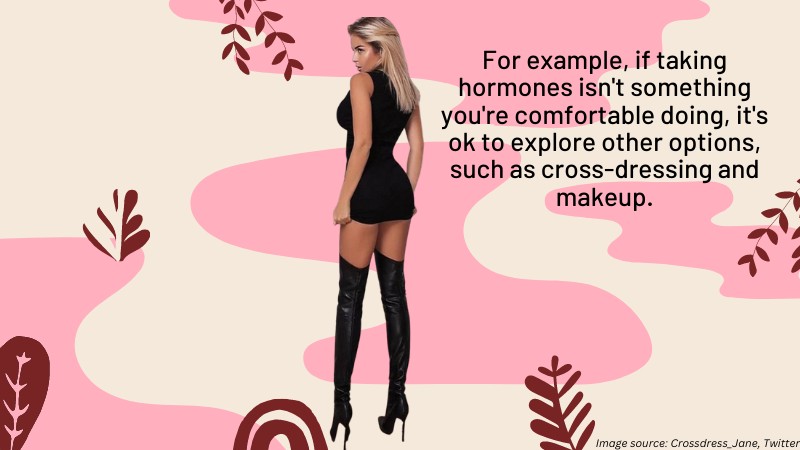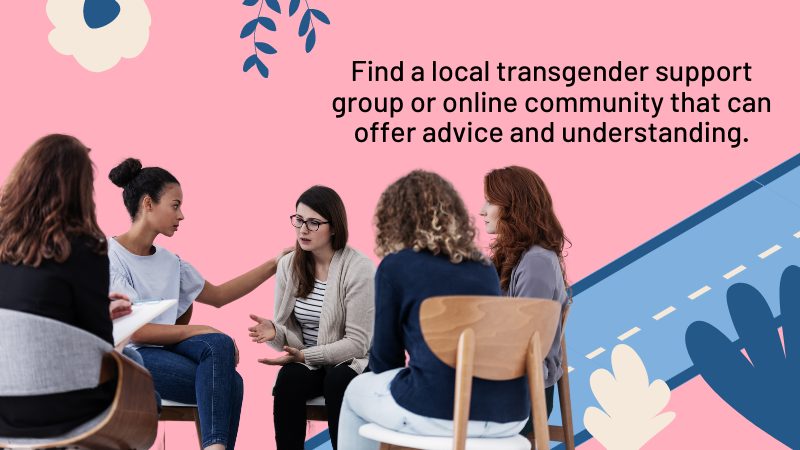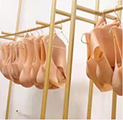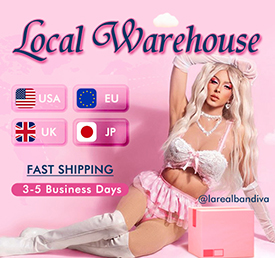Going Too Far With Transitioning | Know When to Stop
If you’re a transgender individual, you know the path to self-discovery can be filled with daunting challenges.
Between grappling with your identity and attempting to create a happy life for yourself, it’s no wonder so many of us try to make ourselves as “normal” as possible.
Unfortunately, this desire can sometimes lead us down a dangerous road wherein we push past our limits to fit in or satisfy societal expectations.

Though transitioning is essential for every trans person’s well-being and personal growth, it pays not to forget that there must always be an endpoint unless certified medical advice tells you otherwise.
Going too far could have very negative physical and mental consequences.
We want to discuss knowing when your transitioning has gone too far!
What is “too far” when it comes to transitioning

When transitioning, have you ever thought to yourself, “How far is too far?”?
This is a great question to ask yourself, and it’s essential to have a clear answer before making any drastic changes.
Too far when it comes to transitioning can mean different things for different people.
Still, it’s essential to understand the potential risks of specific treatments and procedures, both physical and mental.
Suppose you’re considering taking hormones or having surgery.
In that case, it’s necessary to do your research and talk to a healthcare professional before making any decisions.

The most imperative thing is to listen to your body and mind and to be honest with yourself about what you are and aren’t comfortable doing.
If something doesn’t feel right, don’t push yourself to do it.
I like to think of transitioning as a journey; you must take your time and go at your own pace. I enjoy every phase of my journey.
But I know that pushing myself too hard can lead to physical or mental exhaustion and even complications with my health.

One thing that should always guide you is self-love and acceptance.
No matter how far you choose to go on your transition journey, it’s important to remember that you are stunning just the way you are.
It’s important to practice self-care regularly.
When should I know when to stop?
Knowing when to stop is an integral part of transitioning.
It’s easy to get jammed up in the excitement and thrill of exploring your femininity.
Still, it’s essential to be mindful of your own limits.

First, figure out what you’re comfortable doing and what you’re not comfortable doing.
There are many different ways to transition, and finding the right balance is crucial.
For example, if taking hormones isn’t something you’re comfortable doing, it’s ok to explore other options, such as cross-dressing and makeup.

Second, be aware of potential risks associated with certain treatments or procedures.
Always research and talk to a healthcare professional before making any decisions.

Finally, practice self-love and acceptance.
Transitioning can be an exciting journey, but remember that you are attractive just the way you are, and taking care of yourself regularly is essential.
Over time, I have also learned to be mindful of my limitations and to trust myself when deciding how far I am willing to go with transitioning.
By knowing my limits, I can stay safe and healthy while exploring my femininity and creating the life I desire.
Knowing when to stop is an integral part of transitioning, and it’s crucial to listen to your body and mind when deciding how far you want to go.
It’s ok to take your time and go at your own pace and remember that self-love and acceptance should always guide you.
The dangers of going too far with transitioning

Going too far with transitioning can have serious consequences.
Taking hormones without proper medical supervision can lead to dangerous side effects and long-term health complications, such as the increased risk of heart attack, stroke, cancer, and more.
Similarly, specific surgical procedures might not be suitable for everyone and could cause permanent damage or disfigurement if done incorrectly.

It’s also imperative to be aware of the potential psychological effects of transitioning.
Going too far can cause regret and loneliness if you don’t like the result.
Additionally, transitioning can emotionally toll relationships with family and friends who may not necessarily accept or understand your journey.

Ultimately, it’s essential to be aware of the risks associated with transitioning and taking steps to prevent going too far.
Please do your research, talk to a healthcare professional, and always trust yourself when deciding how far you want to go.
Remember that self-love and acceptance should guide you on your journey.
I have transitioned safely and healthily by listening to my body and mind.
Know the risks associated with going too far, and I have found comfort in trusting my limits and practicing self-love and acceptance.
I was unsure how far to go when I started my transition journey.
Now, I feel confident and empowered, knowing that I am in control of my journey and that it doesn’t have to end at a certain point.
I’ve learned that the most important thing is to listen to my needs and trust myself when deciding what is best for me.
One thing that guided me through my transition journey is this quote from Audre Lorde: “Caring for myself is not pleasure-seeking.
It is self-preservation, and that is an act of dogmatic warfare.” Taking care of yourself should always be a priority.
Remember that self-love and acceptance should always guide you on your journey.
What to do if you’ve gone too far with transitioning

If you have gone too far in your transition and feel overwhelmed or regretful, it’s essential to seek help.
Reach out to a healthcare professional or mental health practitioner who can provide you with the support and guidance you need.

Additionally, it may be beneficial to talk to other people who have gone through similar experiences.
Find a local transgender support group or online community that can offer advice and understanding.
Talking to individuals who have gone through similar struggles can help you feel less alone and provide valuable insight into how to cope with your feelings of regret or overwhelm.
Ultimately, it’s vital to remember that you control your transition journey and that mistakes are part of the process.
Don’t be terrified to ask for help when you need it; always trust yourself when deciding how far to go.
Your journey is unique, and you should never feel ashamed of your choices or decisions.
Tips for knowing when to stop transitioning
Wondering if it’s yet time to transition? Here are some tips for knowing when it’s the right time to stop transitioning:

- Make sure you have researched the potential risks and side effects of transitioning. This step is crucial to ensure that you are taking care of your health and well-being.
- Talk to a healthcare professional or mental health practitioner who can provide you with support and guidance.

- Listen to your body and mind, and trust yourself when deciding how far to go. This has really helped me on my journey.
- Take your time and go at your own pace. Don’t be afraid to take breaks or step away from transitioning if you need to.
- Don’t be afraid to take things slow or experiment with different options before making a final decision. Transitioning is about taking an entirely new path, and it’s essential to take the time to explore your options.

- Look for support from other people who have gone through similar experiences. You’re now the first to walk this journey, and neither are you the last. You can find comfort and understanding by reaching out to other transgender people or support groups.
- Most importantly, practice self-love and acceptance throughout your journey. Focus on feeling contented in your skin and trust that you will know when to stop transitioning. It is challenging to transition, and you should be proud of yourself for your courage and determination.
Making the decision to transition is a big one, and it’s essential to take the time to consider your options and make sure that you know when it’s time to stop.
Conclusion
Transitioning can be long and challenging, so it’s important to remember to practice self-care and reach out for support when needed.
Knowing when to stop transitioning is essential, as it can help you stay in control of your journey and ensure that you are taking care of your health and well-being.
By listening to yourself, researching the potential risks and side effects of transitioning, and reaching out for support when needed, you can find the right balance in your transition journey.
Remember that you control your journey and that transitioning is not a race.
Take the time to discover all your options before making decisions, and trust that you will always know when it’s right to stop transitioning.
You can do this! Good luck on your journey.
- The Journey of Confidence: From Self-Doubt to Self-Love Through Crossdressing
- What to Expect for Your First Time Going Out as a Sissy in Public?
- Breaking Gender Norms: Why Gender Expression Is a Playground, Not a Cage
- Why 2025 Is the Best Time to Start Crossdressing and Express Your True Self
- The Truth About Crossdressing: History, Meaning, and Misunderstandings
- Joining TVChix: The Online Space That Changed My CD Experience
Established in 2009, We are a recognized manufacturer and seller of professional crossdressing products.
It is our aim to become not just the most creative manufacturer but also a very considerate seller, as we provide the best quality products for crossdressers all around the world.























 Breast Forms
Breast Forms  Body Suit
Body Suit  Realistic Mask
Realistic Mask  Femini Girdle
Femini Girdle Hip & Butt Enhancement (8)
Hip & Butt Enhancement (8) Penis Prosthesis
Penis Prosthesis Fake Muscle
Fake Muscle Bikini
Bikini  Wig
Wig  Corsets
Corsets Course
Course service@roanyer.com
service@roanyer.com +8618652200711
+8618652200711 Facebook
Facebook YouTube
YouTube Twitter
Twitter Instagram
Instagram




